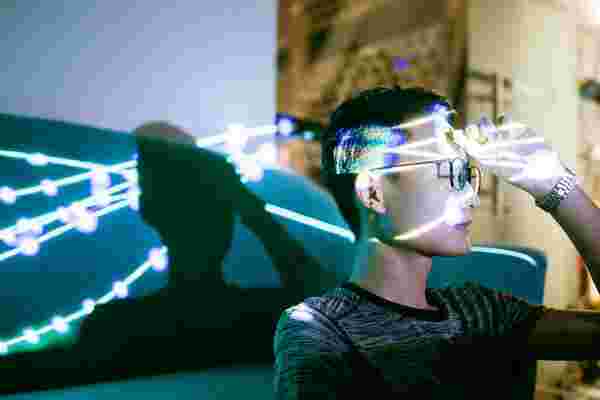
In January 2018, the word “hangry” was officially added to the Oxford English Dictionary. The familiar mash-up of hungry and angry is defined as “bad-tempered or irritable as a result of hunger.” Most of us know the feeling — and research shows it also leads us to make riskier, more impulsive decisions.
Hanger aside, making sound decisions is an essential skill for entrepreneurs. Every day brings a tidal wave of choices, from hiring to product features to marketing plans. As the founder and CEO ofJotForm, I know that decision-making is one of the toughest parts of my job. Technology and markets evolve at lightning speed, and there’s endless data to weigh with every choice.
On the bright side, learning to make smart decisions can help you work more productively, manage stress, dodge burnoutand feel more satisfied in your business and your life.
You’ve probably heard the term “decision fatigue,” which happens when we exhaust our finite supply of self-control. As you go through your day and make increasingly more choices, each one becomes more difficult. Eventually, your brain goes rogue and seeks one of two shortcuts: It acts impulsively or avoids the decision entirely.
58003 “No matter how rational and high-minded you try to be, you can’t make decision after decision without paying a biological price.”
Reducing the sheer number of decisions you need to make is a good start. That’s why so many entrepreneurs wear the same outfit every day, eat the same mealsand have predictable morning routines.
As founders, we also need practical skills. Over the past 14 years, I’ve discovered that when I work with my brain, instead of fighting biology and human nature, I make better choices. Here are seven techniques that can help you to make smarter, more effective decisions.
If you’ve ever spent a Saturday night browsing Hulu, Amazon, Netflixand iTunes just to find a movie to watch with your significant other, you understand why more choices can actually make us unhappy. It’s a phenomenon psychologist Barry Schwartz first outlined in his 2005 book, The paradox of Choice: Why More Is Less.
According to Schwartz, you can sidestep this paradox by settling for “good enough.” As Olga Khazan writes in The Atlantic, “people who do this are called ‘satisficers’ and they’re consistently happier[Schwartz has found]than are ‘maximizers,’ people who feel that they must choose the very best possible option.”
Running a business requires a lot of big decisions. Apply your best thinking and your personal values to the essential choices. Then, settle for good enough with all the peripheral stuff.
In a 2016 letter, Amazon CEO Jeff Bezos told shareholders “most decisions should probably be made with somewhere around 70 percent of the information you wish you had. If you wait for 90 percent, in most cases, you’re probably being slow.”
It’s easy to delay an important decision when there’s a lot on the line. Orto obsessively gather every kernel of data that could sway your choice. I’ve found that in most cases, Bezos is right. Get as much information as you need to choose wisely, and then don’t look back.
We can thank the ancient Stoics for this approach, which means visualizing major problems before they happen, then working backward to make a strong choice. For example, imagine you’re considering a product release delay. What’s the most disastrous possible outcome? If you still made the same choice, how could you prevent this scenario? Orthe exercise might convince you to push ahead and release on schedule.
We often see choices as binary: chocolate or vanilla, left or right. In business, however, it’s rarely this simple — and most options don’t hold the same weight. As you face a tough choice, make sure both options have equal value; that they’re truly two sides of the same coin. 58003 You’ll often find that one choice has far more potential, even if there are risks involved.
The classic pros-and-cons list exists for a reason. Getting your swirling thoughts down on paper can provide clarity. As Chris Charyk writes in Harvard Business Review, these lists promote rigorous thinking, which “minimizes the likelihood that critical factors have been missed.” They also provide some emotional distance from the decision at hand. Just watch out for cognitive biases. These common mental errors, such as anchoring, loss aversionand confirmation bias, can lead us into irrational choices.
Just as entrepreneurs often create an MVp, or minimal viable product, sometimes it pays to make a minimal viable decision. Ask yourself, What’s the smallest possible decision I could make right now?For example, if you’re considering a move to portland, don’t just pack your bags and go. Read travel blogs and stories. Talk to people who live there. Book a three-day trip and find a great co-working space.
Many of us run big decisions by trusted friends, colleaguesor family members. It’s a useful step that might offer a new perspective. 58003 For example, if a colleague agrees that you should move to portland, and you feel encouraged and supported, you’re probably eager to relocate. If you resist their opinion, you’re likely not ready to go. Just be careful not to let other people — especially those you respect and admire —talk you into a choice that doesn’t feel right.
版权及免责声明:凡本网所属版权作品,转载时须获得授权并注明来源“融道中国”,违者本网将保留追究其相关法律责任的权力。凡转载文章,不代表本网观点和立场。
延伸阅读
版权所有:融道中国